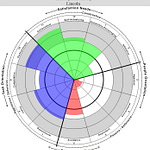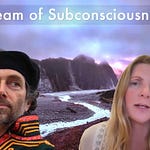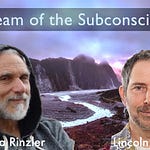“Today, the non-local nature of quantum mechanics is widely accepted, though physicists still debate its implications for our understanding of reality.” — Google’s A.I. summary
Social Attitudes
I’ve been studying physics since high school. I had a few good role models, did some original work, as well as some work that went nowhere. I didn’t like the field’s lack of personal reflection or social purpose that prevailed when I considered entering the job market, so I went into computer software instead.
My first physics orientation came from Albert Einstein’s good friend Eugene Wigner. I was still in high school and didn’t know the scope of the field, but I felt encouraged by Eugene’s enthusiasm and the respect he showed me. He molded my resolve to continue in the field.
I met a similarly encouraging professor in college and a third before entering graduate school. But there were hundreds of depressed and discouraging professors and students that made it clear that my attitude, and that of the three people whom I found encouraging, were exceptions.
Since then I’ve been able to watch the field of physics change and it should be no surprise that it has changed little. People rarely change at all. It was Max Plank, a physicist, who gave us the phrase, “science progresses one funeral at a time.”
Eugene Wigner’s encouragement was a reflection of his personality and his generation. I have been lucky to work with five generations of physicists, beginning with Wigner who worked in the 1930s, and later with Charlie Townes who worked in the 50s and 60s.
I became acquainted with leaders in the field during my student years of the 70s and 80s: DeWitt, Prigogine, Weinberg, Wheeler, and others. I would try to talk them about physics and society though I was never given a real audience. I look at the work of my student colleagues, now at the end of their careers and the work of younger physicists, such as Chris Ferrie who I interviewed here. (https://www.mindstrengthbalance.com/2024/02/07/physics-creativity-culture-and-the-future-podcast/)
We don’t hear about changes in fundamental scientific attitudes. We hear about physics’ effects on weapons, power, and space travel. Physics is not taught in high school and few pursue it in college so most people know nothing about it. You may have taken a course in high school called physics, but it was not physics, it was practical mechanics.
The public has little insight into the inventions that have had a great effect on culture, such as transistors, lasers, and nanotechnology. These all revolve around quantum mechanics and have enabled just about everything we now take for granted, including pharmaceuticals, computation, and the internet.
When I showed interest in the social dimension of physics as a student I was both stigmatized and told to shut up. No other students spoke up and, to this day, few scientists criticize the culture of science. If this reminds you of religion, it should.
The more a field pretends to be separate from culture, the more it’s vulnerable to being marginalized and manipulated. A person who denies that culture affects the way they think become oblivious to culture’s effects. If they continue to ignore what’s affecting them, they lose control over their own thoughts. Such has happened in the technology fields.
Leading scientists I spoke with 20 years ago were already talking about how basic research was no longer being supported. They said funding had been drying up for decades, and it has only dried up further. In 2005 my mentor Charlie Townes said that today he would not be given the support to develop the laser. America’s progressive failing at funding basic research is what China has now recognized and is exploiting. Scientists who deny that cultural attitudes affect their work become pawns of cultural attitudes.
For a better grip on reality, book a free call:
Listen to this episode with a 7-day free trial
Subscribe to Stream of Subconsciousness to listen to this post and get 7 days of free access to the full post archives.












